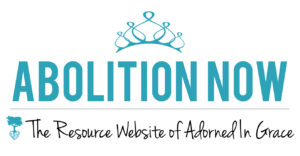
“Nearly every country is involved in the web of trafficking activities,” the Airline Ambassadors’ website reminds us. The airline industry connects every country across the globe.
Airline Ambassadors Help End Human Trafficking
“Nearly every country is involved in the web of trafficking activities,” the Airline Ambassadors’ website reminds us. The airline industry connects every country across the globe. Along with aiding other human needs, Nancy Rivard saw the power that airlines possess in putting an end to trafficking when she founded Airline Ambassadors in 1996.
Located in Washington, D. C. and affiliated with the United Nations, Airline Ambassadors is a vital non-profit organization. In my opinion, they are doing miracles for trafficking awareness. All their training sessions are voluntary. Airline attendants and the public receive instructions on how to spot a victim of human trafficking on a flight and what to do about it. A slideshow used in the trainings can be found here.
Awareness leads to rescue.
Their team first became aware of the international problem of human trafficking in 2009. The issue came to life for Nancy Rivard while on a humanitarian mission to Cambodia where they rescued a little girl from a dangerous living situation. Nancy had recently read The Road of Lost Innocence by Somaly Mam, the true story of a woman’s experience in the sex trade of Southeast Asia. She realized what could have become this little girl’s plight had the child stayed in her former home. Shortly prior to this, her group had also learned how to spot human trafficking, thanks to a woman from Innocents at Risk. They agreed to stay alert on the flights to and from their next mission, and successfully identified trafficking incidents on multiple flights and airlines. Soon after, they provided two safe houses for trafficking victims in Haiti.
Airline employees are key to interrupting international child trafficking.
Nancy recognized that flight attendants and others airline employees are in a unique position to act as one last roadblock in the international trafficking of minors. They developed an airline industry specific training, along the lines of the Department of Homeland Security’s Blue Campaign. Airline Ambassadors pushed several large airlines to introduce human trafficking awareness as part of the required flight attendant training. Unfortunately, the airlines did not wholeheartedly welcome this idea as the Ambassadors had hoped. However, since 2011, they have provided 20 free public trainings at airports, amounting to about 1,500 individuals!
While the rate of growth and success of their trainings, as well as the passionate response of the public, have been hopeful, Nancy knows the airlines are not doing enough. Airlines are heading in the right direction, but need to exercise a more proactive stance by taking on greater responsibility. The trainings provided by the airlines for their flight attendants are not adequate. Not enough airlines are adopting the policies. Nancy believes the airlines are afraid of the issue. To me, it seems airlines have the power to accomplish the task, but cannot address such a large and revolting issue straight in the face.
Currently Airline Ambassadors is in need of funding for their public awareness trainings. They provide these trainings for free, generally with the help of sponsors. I am in awe of the brilliance of this organization and what they have been able to accomplish: they are equipping thousands of people with practical tools to do something about stopping human trafficking! Nancy says she is hopeful for the future. The individuals she has encountered are passionate about their cause and want to do more.
If you are interested in reading more about the human trafficking awareness programs and their other excellent programs, explore the Airline Ambassadors’ website here.

